The Importance of Parent-Teacher Communication
Parent-teacher communication is pivotal in a child’s academic and personal development. Establishing open communication lines between parents and teachers fosters trust, enhances collaboration, and creates a supportive learning environment. This partnership ensures educators and parents are on the same page, addressing challenges and celebrating achievements together.
Effective communication strengthens the connection between school and home, contributing to a child’s holistic growth while reinforcing shared values and goals. At Montessori Episcopal School, this collaboration is integral to nurturing independence and a love of learning.
Understanding the Importance of Parent-Teacher Communication in Childcare
Effective communication between parents and teachers is fundamental to a child’s development. In childcare settings, where children are in their formative years, consistent communication builds a strong academic and emotional growth foundation.
This collaborative approach ensures that children get the necessary support to thrive at home and in school. By understanding each child’s unique needs, parents and teachers can work together to provide an enriching, personalized experience that encourages success and nurtures overall well-being.
The Role Communication Plays in Early Childhood Development
Communication is essential for fostering a child’s cognitive, social, and emotional development, particularly in the early years. Open communication helps align expectations and offers critical insights into each child’s needs.
Here’s how communication supports development:
- Early identification: Detects learning or behavioral challenges early on.
- Home-school connection: Provides context on a child’s background and environment.
- Emotional support: Builds a network of consistent care between home and school.
At Montessori Episcopal School, communication is vital in ensuring children feel supported at home and in the classroom, creating a nurturing environment that promotes their well-being and growth.
Benefits of Strong Parent-Teacher Relationships in a Childcare Setting
Strong relationships between parents and teachers create a positive and collaborative environment, which is vital in childcare. When communication is prioritized, both parties can work together to ensure the best outcomes for the child.
The benefits include:
- Trust-building: Encourages openness and collaboration.
- Consistent feedback: Provides regular updates on a child’s progress.
- Parental involvement: Increases parent participation in school activities and decision-making.
In addition to trust, consistent communication fosters a better understanding of the child, allowing teachers to adjust their approach to meet individual needs. Montessori Episcopal School champions these relationships to support children’s academic and emotional growth.
Parent-Teacher Communication Strategies for Effective Collaboration
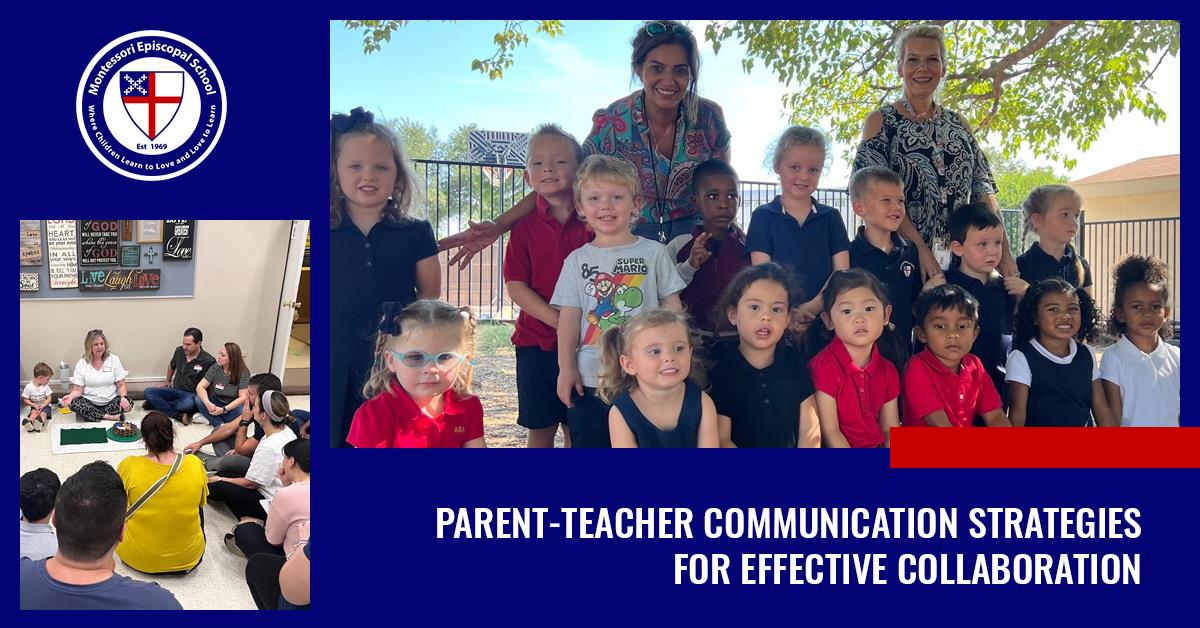
Creating strong lines of communication between parents and teachers requires practical strategies that keep both parties informed and involved. Tools like mobile apps, newsletters, and scheduled meetings ensure parents stay current on their child’s progress. Engaging in regular, open dialogue allows teachers to provide real-time feedback while allowing parents to share valuable insights about their children.
Tools and Techniques for Staying Connected
Effective communication doesn’t happen by chance—it requires the right tools to facilitate ongoing collaboration. Some proven methods include:
- Mobile apps: Allow real-time updates on a child’s progress, behavior, and activities.
- Newsletters and emails: Provide weekly or monthly overviews of classroom activities and upcoming events.
- Parent-teacher meetings: Offer structured time for in-depth discussions about a child’s growth, challenges, and milestones.
Montessori Episcopal School utilizes these tools to ensure a continuous exchange of information, making it easy for parents to take part in their child’s educational journey.
Best Practices for Engaging Parents in Their Child’s Learning Journey
Effective communication is more than just sharing updates; it fosters genuine involvement. Teachers create a more cohesive and supportive learning environment by engaging parents as active participants in their child’s education.
Key best practices include:
- Encouraging two-way communication: Regularly inviting feedback from parents helps create a balanced dialogue.
- Providing actionable insights: Share specific suggestions with parents on how they can reinforce learning at home.
- Creating an open-door policy: Encouraging parents to reach out at any time fosters a collaborative atmosphere and promptly addresses concerns.
Montessori Episcopal School strengthens parent-teacher partnerships by following these strategies, creating a foundation for lifelong learning and success.
The Keys to Effective Parent-Teacher Communication
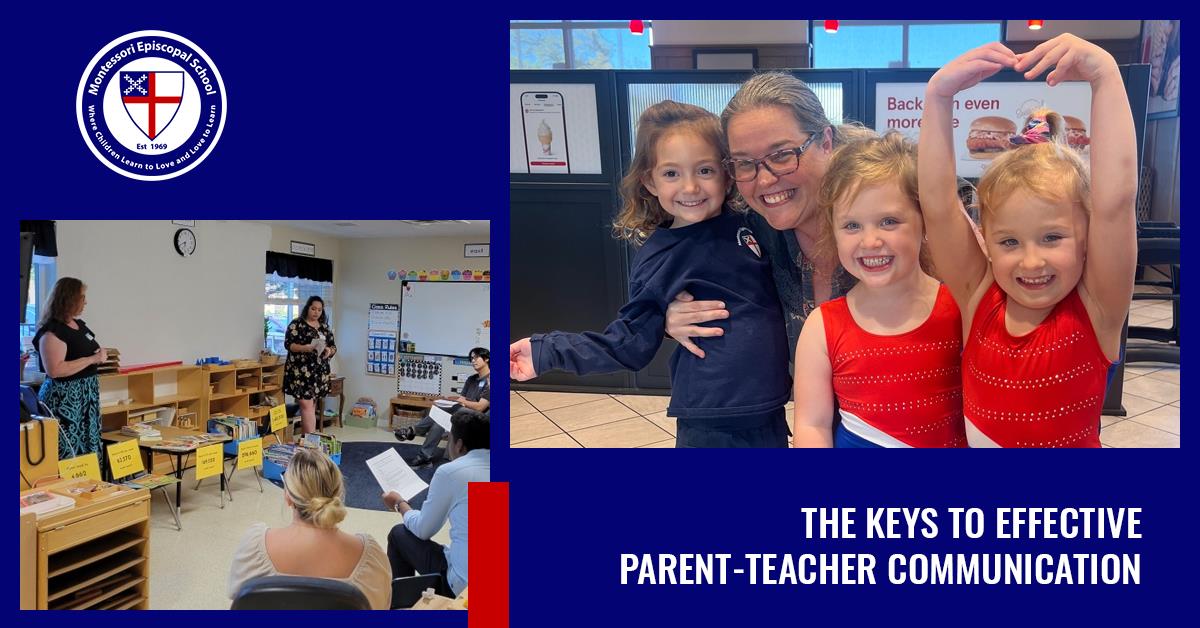
Effective parent-teacher communication hinges on clarity and consistency. When both parties are aligned in their messaging, it builds trust and ensures everyone works toward the same goal: the child’s well-being. Whether through regular updates or structured meetings, maintaining a steady flow of communication helps prevent misunderstandings and keeps parents actively engaged.
Clear, Consistent Communication
Consistency is crucial when it comes to effective communication. Maintaining regular contact helps keep parents informed and ensures they know their child’s progress and any areas of concern. The most successful communication strategies often include:
- Regular updates: Weekly or monthly reports on a child’s behavior, academic progress, and social development.
- Scheduled check-ins: Brief, consistent touchpoints to inform parents of classroom happenings.
At Montessori Episcopal School, teachers emphasize clarity in every interaction, ensuring parents are well-informed and can provide the support their child needs.
How Transparency and Active Listening Improve Outcomes
Transparency fosters trust, while active listening ensures parents feel heard and valued. When teachers are transparent about a child’s development and open to parental input, they create an atmosphere of collaboration. This dynamic partnership leads to better educational outcomes, as parents and teachers work together to meet the child’s needs.
Critical components of transparency and active listening include:
- Honest feedback: Sharing both successes and areas for improvement with parents in a constructive manner.
- Attentive listening: Being open to parental concerns and suggestions and incorporating them into classroom strategies when appropriate.
Montessori Episcopal School strengthens the partnership between home and school, helping each child reach their full potential by maintaining open, transparent communication and practicing active listening.
Creating a Supportive Learning Environment through Communication
Open communication between parents and teachers is the foundation of a supportive learning environment. When both parties work together, the home-school connection strengthens, making the child feel more secure and confident in their educational journey. By keeping lines of communication open, educators can create an atmosphere where children thrive academically, socially, and emotionally.
Strengthening the Home-School Connection
Building a strong connection between home and school is vital to fostering a positive learning environment. This partnership creates consistency for the child, helping them feel supported from both sides. Key ways to strengthen this connection include:
- Regular check-ins: Frequent updates between parents and teachers on the child’s progress.
- Collaborative problem-solving: Addressing any challenges the child may face, with both sides working together for a solution.
Montessori Episcopal School believes that a strong home-school connection enriches the child’s learning experience, providing them with the security and encouragement they need to succeed.
How Communication Reinforces Educational Values
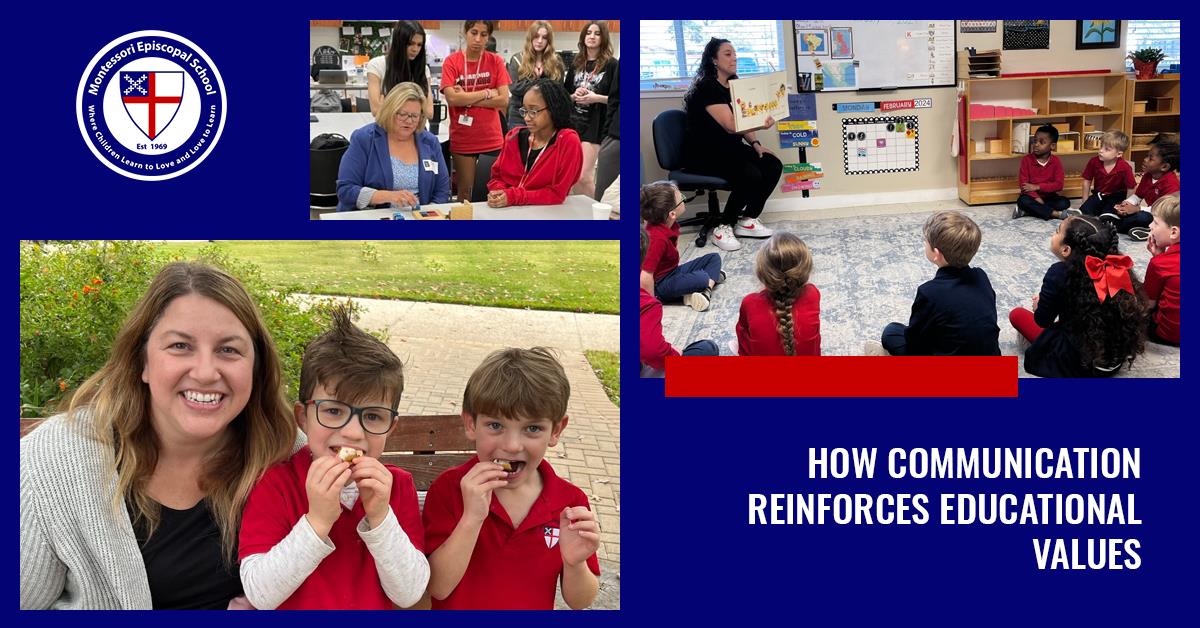
Communication is crucial in reinforcing the educational values taught at school. When parents and teachers split similar goals and values, children receive consistent messages about the importance of learning, responsibility, and respect. This alignment between home and school strengthens the child’s understanding of these principles, reinforcing what they learn in class.
Key ways communication reinforces educational values include:
- Sharing updates on classroom activities: Allowing parents to mirror educational values at home.
- Aligning on behavioral expectations: Ensuring consistency in expectations between home and school.
By reinforcing these values, Montessori Episcopal School helps children develop into well-rounded individuals prepared to embrace academic and personal growth.
Building Long-term Relationships with Parents
Developing strong, long-term relationships with parents is essential for creating a positive and collaborative school community. Communication is critical to building trust and ensuring parents feel involved and confident in their child’s education. By fostering these relationships, schools create a foundation of mutual respect and support that benefits the child and the wider school community.
How Ongoing Communication Fosters Trust and Collaboration
Regular and transparent communication is vital in building trust between parents and teachers. When parents receive consistent updates and feel that their input is valued, they are more likely to collaborate openly with educators. Key elements include:
- Regular updates: Keep parents updated about their child’s progress and upcoming events.
- Open dialogue: Encourage parents to share their concerns and ideas, making them feel like partners in their child’s education.
At Montessori Episcopal School, this ongoing communication builds a foundation of trust, making it easier for parents and teachers to work in supporting the child’s development.
Encouraging Parent Involvement in School Activities
Active parent involvement in school activities enhances the educational experience for both the child and the school community. Schools foster a sense of belonging and collaboration by inviting parents to participate in events, volunteer opportunities, and classroom activities. Ways to encourage involvement include:
- Inviting parents to school events: Create opportunities for parents to engage with the school community.
- Offering volunteer roles: Encourage parents to contribute their time and talents to school initiatives.
Montessori Episcopal School emphasizes the importance of parent involvement, believing that a strong partnership between parents and teachers leads to a richer, more supportive learning environment for children.
Conclusion
Strong parent-teacher communication is the cornerstone of a child’s success in school and beyond. Schools can create a collaborative environment where children thrive by fostering open dialogue, using effective strategies, and encouraging parental involvement. At Montessori Episcopal School, we are committed to building meaningful relationships with parents to ensure each child’s holistic development. Together, we can develop a nurturing and supportive space where every child reaches their full potential.
Together, we can provide the nurturing environment your child needs to thrive academically, socially, and emotionally. Take the chance to be part of a supportive, engaged community that values your involvement every step of the way. Contact us today at (972) 895-9050, or visit our contact page to learn more!
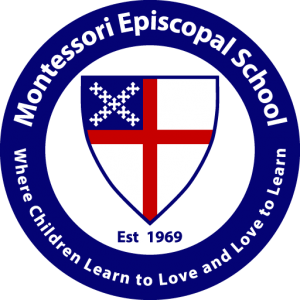
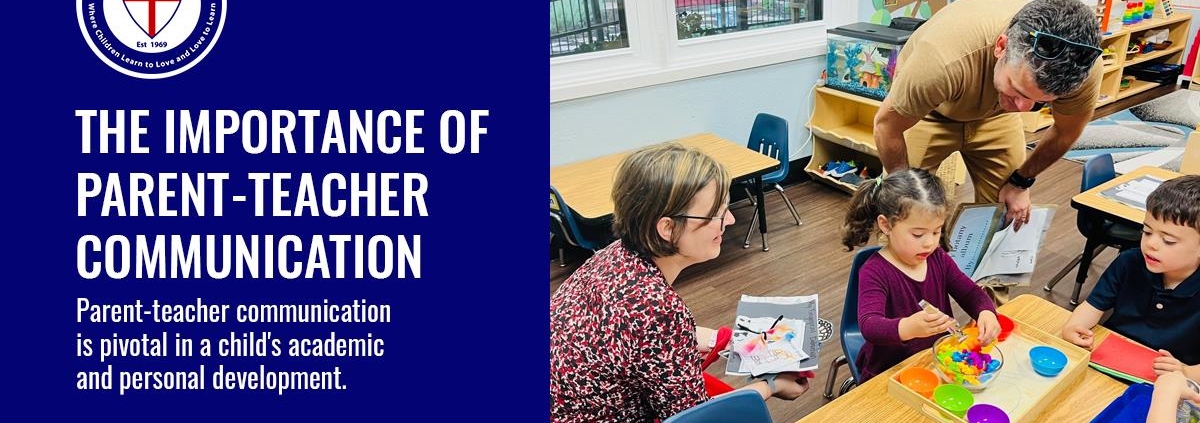


Leave a Reply
Want to join the discussion?Feel free to contribute!